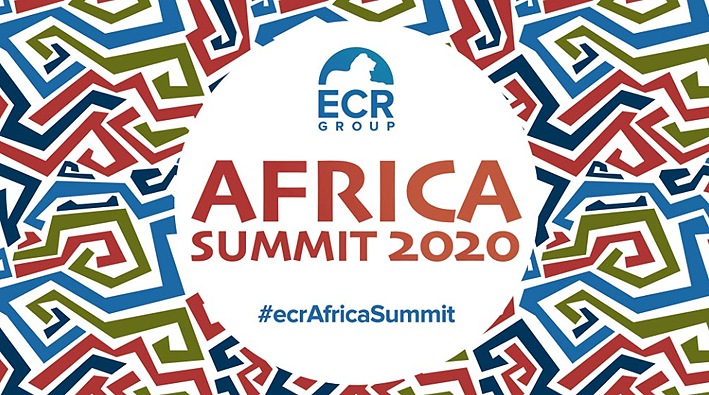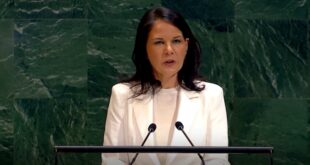On 4 March 2020 in Brussels, the European Conservatives and Reformists (ECR) group will host the ECR-Africa Summit to discuss policy options about governance, participation of women, foreign direct investment and the digital economy to develop a stronger relationship between the EU and Africa. Guest speaker is the President of Ghana, Nana Akufo-Addo. The ECR’s co-chair Ryszard Legutko MEP, who will oversee the summit, explains its background and what it seeks to achieve.
——–
Nelson Mandela once said: “I dream of an Africa which is at peace with itself.”
As we move to explore new opportunities in a new decade, I believe Africa and its people can dare to dream of more.
They can dream of an Africa not only at peace with itself but at peace with the world: confident of its place as a global player, optimistic about its prospects culturally and commercially, and perhaps – at last – an Africa on the brink of its long-awaited awakening as a more prosperous, democratic, less hungry and lawless continent.
Of course to talk of the whole continent Africa as though it were one homogenous society is a nonsensical trope which we come across all too often when discussing the emerging markets.
The potential for the typical African nation to become happier, less hungry, more prosperous and freer is there for all to see.
And, I believe, whether or not those countries achieve that potential will depend greatly on how they foster their relationships with the more-developed nations, particularly those in Europe, where for historical and geo-political reasons the closest links already exist.

I believe it is hugely important that over time those relationships are transformed from one where a particular country is overly dependent on another, such as the paternalistic and patronising international aid system we see today, to a new one that is characterised by investment which benefits both sides, through trade in goods and services which become the bonds that bind equal parties together.
When advice and training are required – in areas such as good governance, human rights, transparency and rules-based living – this should emanate from friends and partners not high-handed and culturally-autocratic former-colonial powers. That is why the European Conservatives and Reformists group, which I co-chair in the European Parliament, has just announced its second Africa Summit – to be held in Brussels on 4 March.
Four panels
The event will comprise of four panels examining the key factors which underpin Africa’s potential and will be vital in unleashing such potential.
The first will examine the role of good, transparent, democratic governance in supporting growth, stability and inclusivity.
The second will discuss the role and representation of women in politics, government and public life. I believe the measure of a country’s political health and development will be the extent to which women are fairly and equally enabled not only to take part in the political process, but also to shape it and lead it.
Foreign direct investment will be examined during the third panel. International investment is growing impressively in response to an increasingly competitive internal trading market within Africa, and the panel will seek to find ideas for helping to re-balance EU-Africa trading relations.
The role and potential of Africa’s digital economy – not only as a driver for prosperity but as a support mechanism for human rights, freedom of expression and democracy – will occupy the attention of the final panel.
If the scope and ambition of our subject matter is impressive, then our line-up of speakers is equally so.

Our keynote speaker is the President of Ghana Nana Akufo-Addo. His policies have included the introduction of free secondary education across Ghana, which he rightly calls “necessary investment” in the nation’s future workforce.
His economic policies aim to revitalise the economy; transform agriculture and industry; revamp economic and social infrastructure; strengthen social protection and inclusion; and reform delivery of public service institutions.
His country will also host the 2023 Africa games, which he sees as a huge potential catalyst for regeneration and transformation.
A worthy programme indeed and – dare I say – one that could become a model for many other African developing nations.
Our other speakers will include further leading politicians, business figures, academics, medical experts, investment specialists and campaigners, drawn from across sub-saharan Africa and the EU.
I believe this summit and our future conferences can be a key driver and launchpad for a radical, re-booted, revitalised relationship that will have huge benefits in Africa and also here in Europe.
So – having quoted Mandela at the outset dreaming of a better future, let me conclude with another vision – more recent, more concrete and indeed more positive. It comes from Dutch businessman Paul Polman, who until recently was chief executive office of Unilever.
He says: “Africa’s vibrancy and entrepreneurial spirit is unmatched. There’s huge potential here to grow business, create jobs, and to improve living standards.”
We at the ECR-Africa summit second that.
For more information about the ECR-Africa summit, click here.
 THE AFRICAN COURIER. Reporting Africa and its Diaspora! The African Courier is an international magazine published in Germany to report on Africa and the Diaspora African experience. The first issue of the bimonthly magazine appeared on the newsstands on 15 February 1998. The African Courier is a communication forum for European-African political, economic and cultural exchanges, and a voice for Africa in Europe.
THE AFRICAN COURIER. Reporting Africa and its Diaspora! The African Courier is an international magazine published in Germany to report on Africa and the Diaspora African experience. The first issue of the bimonthly magazine appeared on the newsstands on 15 February 1998. The African Courier is a communication forum for European-African political, economic and cultural exchanges, and a voice for Africa in Europe.



















